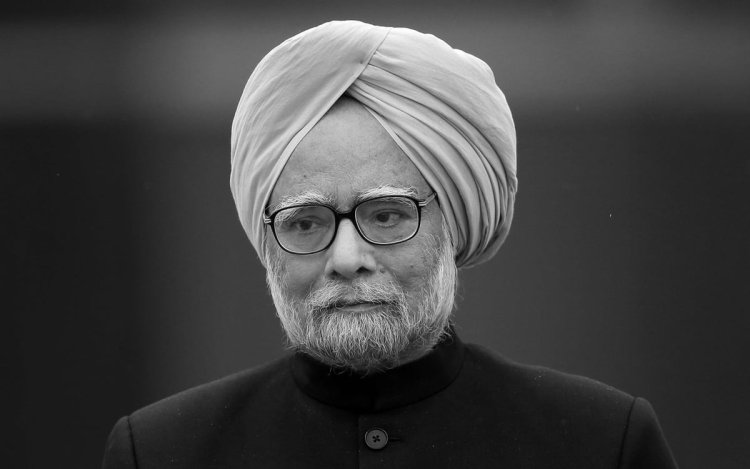Manmohan Singh: Who changed the history, politics and economy of the country
The country was facing a severe currency crisis in 1991... the foreign exchange reserves were only equivalent to two weeks of imports... the country's gold was mortgaged... In such a dire situation Manmohan Singh became the finance minister and created history through economic reforms. The controlled economy was freed from the license raj. Liberalization began. The way for foreign investment was opened.

1991: A close aide of PM Narsimha Rao called Manmohan and woke him up from his sleep… informed him about being made the Finance Minister… and the country recovered from a deep crisis
1991. PGC Chairman Manmohan Singh returned to Delhi after attending a conference in Netherlands. Late in the night, his son-in-law Vijay Tankha received a phone call and was asked to wake Manmohan up. This phone call changed not only Manmohan Singh's life but also the country's economy forever
This call was made by PC Alexander, a confidant of the then Prime Minister PV Narasimha Rao. A few hours after the call, Manmohan and Alexander met. Alexander said that Rao wanted to make him the Finance Minister of the country.
Manmohan, who had nothing to do with politics, did not take it seriously, but Rao was very serious about him. According to Manmohan's daughter Daman Singh's book 'Strictly Personal, Manmohan and Gursharan', on 21 June 1991, Manmohan was in his UGC office. He was asked to go home and get ready and reach the swearing-in ceremony.
Everyone was surprised to see Manmohan as a member of the new team of oath takers. The allocation of the post was formally done later, but Rao had already told him that he was being made the Finance Minister
Pioneer of economic reforms
Only two weeks of foreign exchange reserves were left; Manmohan brought the economy back on track
Manmohan's appointment as Finance Minister changed the direction of the country's economy. India has gone from being an isolated, heavily regulated, low-growth economy to one of the fastest growing major economies in the world. Manmohan, along with Rao, was the architect of the 1991 reforms.
Foreign exchange reserves had fallen to Rs 2,500 crore, which was only enough to meet 2 weeks of imports. Global banks were refusing to give loans, but Manmohan's strategy helped the economy get back on track.
Freedom from license raj... Opened the way for foreign investment
Manmohan, along with then RBI Deputy Governor C Rangarajan, devalued the rupee and in partnership with then Commerce Minister P. Chidambaram, removed export controls. The Indian economy was also freed from the license-permit raj. This reduced government interference in industries. The way for foreign investment opened up. Private investment was also encouraged in government companies.
SEBI was established… gave freedom to companies to raise funds
Manmohan's first budget paved the way for the establishment of the Securities and Exchange Board of India (SEBI) and gave companies freedom to raise funds. A committee headed by RBI Governor M. Narasimhan was formed for financial reforms.
RBI saluted
The country was rescued from crisis... the beginning of a new economic era
"Sanjay Malhotra, Governor, Reserve Bank of India"
Manmohan Singh's contribution as the architect of India's economic reforms has left an indelible mark. Singh, a former prime minister and finance minister, also served as RBI governor between 1982 and 1985. When Manmohan, a visionary economist, took over the finance ministry in 1991, the fiscal deficit was close to 8.5 per cent of GDP. The balance of payments deficit was huge and the current account deficit was close to 3.5 per cent of GDP. To make matters worse, foreign exchange reserves were just enough to pay for two weeks of imports, indicating that Indian economy was running out of cash.
The economy was in deep crisis. This period ushered in a new economic era through the Union Budget 1991-92. This was a turning point in the economic history of independent India, which included bold economic reforms, abolition of the Licence Raj and opening up of many sectors to private and foreign players to allow capital to flow in.
Liberalisation laid the foundation of the modern economy
"Raghuram Rajan, Former Governor, Reserve Bank of India"
Manmohan Singh had a farsighted view of India's prospects. He had a good understanding of political feasibility and was modest and soft-spoken. This was the reason why talented people like Montek Singh Ahluwalia, Rangarajan and Rakesh Mohan were part of his team. He also had a good understanding of what was politically possible. The liberalisation and reforms he carried out with the support of Prime Minister Narasimha Rao laid the foundation of the modern Indian economy.













